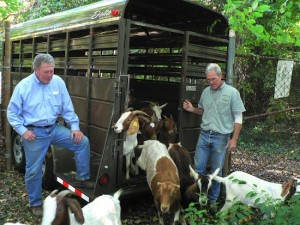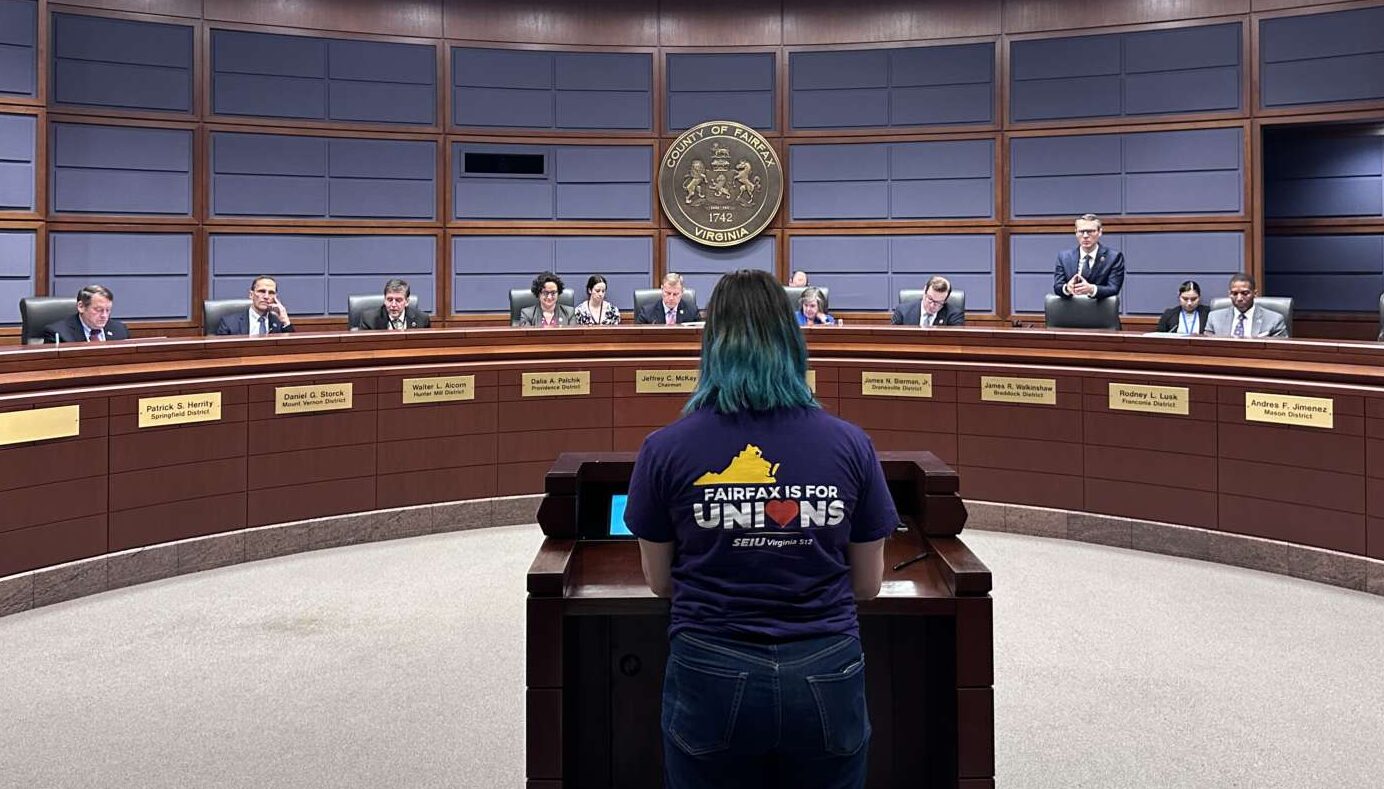 The Reston Association Board of Directors will consider a proposal to look at using goats to manage invasive plant species in Reston.
The Reston Association Board of Directors will consider a proposal to look at using goats to manage invasive plant species in Reston.
Hunters Woods/Dogwood Director Lucinda Shannon approached RA CEO Cate Fulkerson and RA Environmental Resources Manager Claudia Thompson-Deahl earlier this summer, pointing out that Tree Pittsburgh, an environmental nonprofit, recently used goats from Eco-Goats, a company in Maryland, to restore vegetation on a hill in the city.
Goats were also used last year to manage invasive plants at Congressional Cemetery in D.C.
Here is how it works: Eco-Goats trucks in several dozen goats to the site. A temporary fence is installed, and goats graze for a few days on the offending plants. Meanwhile, goat droppings make great fertilizer for the return of the native plants, Eco-Goats says.
Goats are able to eat plants that are poisonous to other animals and their mouth structure destroys the seeds of the invasives.
Invasive plants such as Purple Loosestrife, Winged Burning Bush and English Ivy, among others — are an issue on both Reston Association and privately owned land in Reston. They damage the native plants and affect wildlife.
The RA board will talk about the goat idea at its planning meeting this week.
Meanwhile, there is an item in the Reston deed that prohibits livestock, but the board and the Design Review Board may be able to get around it with the idea that the goats will be temporary.
Photo: Eco-Goats goats get to work/Credit: Eco-Goats





